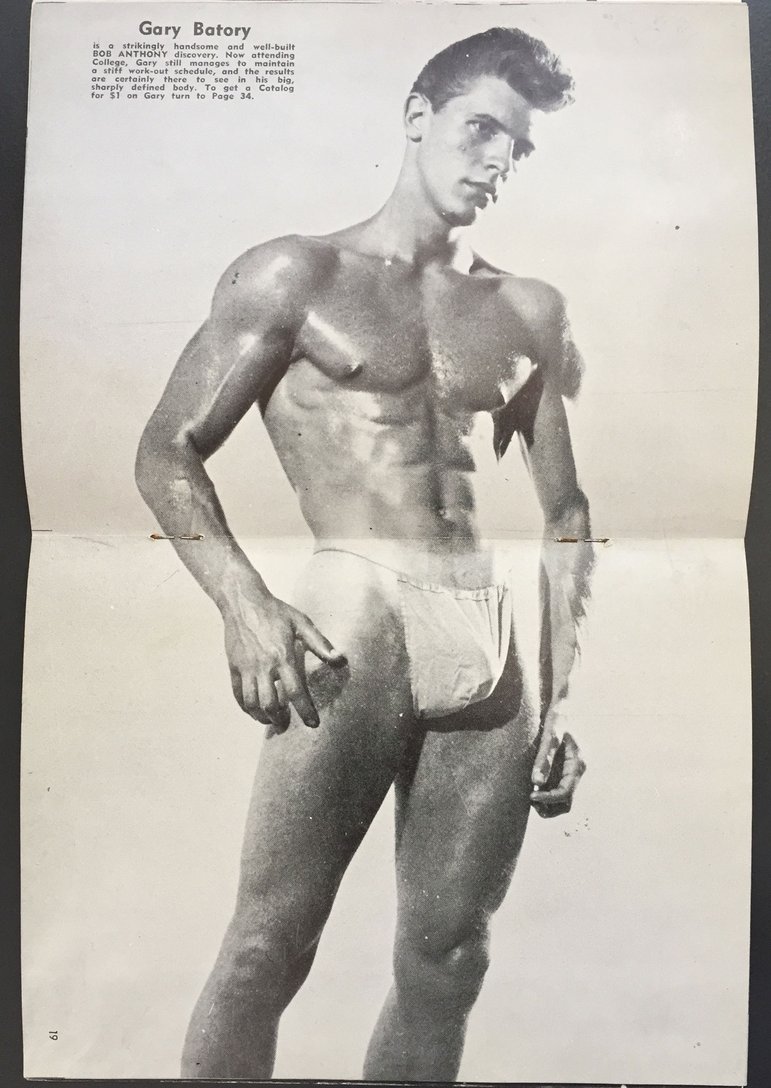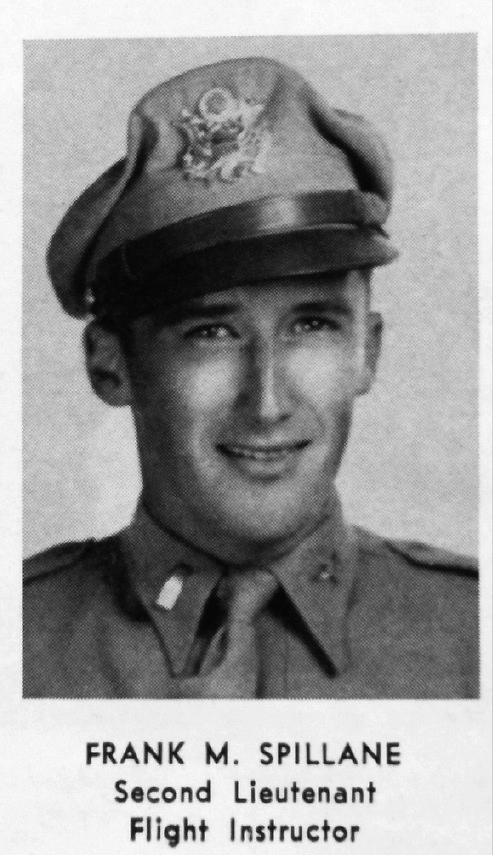|
For Men Only (magazine)
''For Men Only'' was a men's magazine published from 1954 to the late 1970s. It began as a men's adventure digest-sized magazine, but became a pornographic magazine in the 1970s. It was published by the New York-based company Magazine Management (under various other names), which later became known as Marvel Entertainment. Magazine Management published similar magazines like ''Stag (magazine), Stag'' and ''Male (magazine), Male''. Writers Because it employed young writers in New York City, many of its former staff and contributors — such as Martin Cruz Smith and Donald Bain (writer), Donald Bain — became well-known later in their lives. All of them wrote under pseudonyms while writing or editing ''For Men Only''. Donald Bain (writer), Donald Bain wrote for the magazine in the early 1960s at a time when other writers contributing to the cluster of men's magazines included Mario Puzo, Mickey Spillane and Bruce Jay Friedman. Bain described writing for the magazine as a sought-af ... [...More Info...] [...Related Items...] OR: [Wikipedia] [Google] [Baidu] |
Men's Adventure
Men's adventure is a genre of magazine that was published in the United States from the 1940s until the early 1970s. Catering to a male audience, these magazines featured pin-up girls and lurid tales of adventure that typically featured wartime feats of daring, exotic travel or conflict with wild animals. These magazines were also colloquially called "armpit slicks", "men's sweat magazines" or "the sweats", especially by people in the magazine publishing or distribution trades. Overview Fawcett Publications was having some success with their slick magazine ''True'' whose stories developed more of a war focus after the U.S. entered World War II in 1941. Pulp magazine '' Argosy'' opted to switch to slick paper in 1943, and mix in more 'true' stories amidst the fiction. The other major pulps ''Adventure'', ''Blue Book'' and ''Short Stories'' eventually followed suit. Soon new magazines joined in - Fawcett's ''Cavalier'', '' Stag'' and '' Swank''. During their peak in the late 1950s ... [...More Info...] [...Related Items...] OR: [Wikipedia] [Google] [Baidu] |
Mario Puzo
Mario Francis Puzo (; ; October 15, 1920 – July 2, 1999) was an American author, screenwriter, and journalist. He is known for his crime novels about the Italian-American Mafia and Sicilian Mafia, most notably ''The Godfather'' (1969), which he later co-adapted into a film trilogy directed by Francis Ford Coppola. He received the Academy Award for Best Adapted Screenplay for the first film in 1972 and for ''Part II'' in 1974. Puzo also wrote the original screenplay for the 1978 '' Superman'' film and its 1980 sequel. His final novel, '' The Family'', was released posthumously in 2001. Personal life Puzo was born in the Hell's Kitchen section of New York City to Italian immigrants from Pietradefusi, Province of Avellino, Campania. When Puzo was 12, his father, who worked as a trackman for the New York Central Railroad, was committed to the Pilgrim State Hospital insane asylum for schizophrenia, and his wife, Maria, was left to raise their seven children. He served in the ... [...More Info...] [...Related Items...] OR: [Wikipedia] [Google] [Baidu] |
Magazines With Year Of Disestablishment Missing
A magazine is a periodical publication, generally published on a regular schedule (often weekly or monthly), containing a variety of content. They are generally financed by advertising, purchase price, prepaid subscriptions, or by a combination of the three. Definition In the technical sense a ''journal'' has continuous pagination throughout a volume. Thus ''Business Week'', which starts each issue anew with page one, is a magazine, but the '' Journal of Business Communication'', which continues the same sequence of pagination throughout the coterminous year, is a journal. Some professional or trade publications are also peer-reviewed, for example the '' Journal of Accountancy''. Non-peer-reviewed academic or professional publications are generally ''professional magazines''. That a publication calls itself a ''journal'' does not make it a journal in the technical sense; ''The Wall Street Journal'' is actually a newspaper. Etymology The word "magazine" derives from Arabic , th ... [...More Info...] [...Related Items...] OR: [Wikipedia] [Google] [Baidu] |
Magazines Published In New York City
A magazine is a periodical publication, generally published on a regular schedule (often weekly or monthly), containing a variety of content. They are generally financed by advertising, purchase price, prepaid subscriptions, or by a combination of the three. Definition In the technical sense a '' journal'' has continuous pagination throughout a volume. Thus ''Business Week'', which starts each issue anew with page one, is a magazine, but the '' Journal of Business Communication'', which continues the same sequence of pagination throughout the coterminous year, is a journal. Some professional or trade publications are also peer-reviewed, for example the '' Journal of Accountancy''. Non-peer-reviewed academic or professional publications are generally ''professional magazines''. That a publication calls itself a ''journal'' does not make it a journal in the technical sense; ''The Wall Street Journal'' is actually a newspaper. Etymology The word "magazine" derives from Arabic , ... [...More Info...] [...Related Items...] OR: [Wikipedia] [Google] [Baidu] |
Magazines Established In 1954
A magazine is a periodical publication, generally published on a regular schedule (often weekly or monthly), containing a variety of content. They are generally financed by advertising, purchase price, prepaid subscriptions, or by a combination of the three. Definition In the technical sense a ''journal'' has continuous pagination throughout a volume. Thus '' Business Week'', which starts each issue anew with page one, is a magazine, but the '' Journal of Business Communication'', which continues the same sequence of pagination throughout the coterminous year, is a journal. Some professional or trade publications are also peer-reviewed, for example the '' Journal of Accountancy''. Non-peer-reviewed academic or professional publications are generally ''professional magazines''. That a publication calls itself a ''journal'' does not make it a journal in the technical sense; ''The Wall Street Journal'' is actually a newspaper. Etymology The word "magazine" derives from Arabic ... [...More Info...] [...Related Items...] OR: [Wikipedia] [Google] [Baidu] |
Defunct Magazines Published In The United States
{{Disambiguation ...
Defunct (no longer in use or active) may refer to: * ''Defunct'' (video game), 2014 * Zombie process or defunct process, in Unix-like operating systems See also * * :Former entities * End-of-life product * Obsolescence Obsolescence is the state of being which occurs when an object, service, or practice is no longer maintained or required even though it may still be in good working order. It usually happens when something that is more efficient or less risky r ... [...More Info...] [...Related Items...] OR: [Wikipedia] [Google] [Baidu] |
Centerfold
The centerfold or centrefold of a magazine is the inner pages of the middle sheet, usually containing a portrait, such as a pin-up or a nude. The term can also refer to the model featured in the portrait. In saddle-stitched magazines (as opposed to those that are perfect-bound), the centerfold does not have any blank space cutting through the image. The term was coined by Hugh Hefner, founder of ''Playboy'' magazine. The success of the 1953 first issue of ''Playboy'' has been attributed in large part to its centerfold: a nude of Marilyn Monroe. The advent of monthly centerfolds gave the pin-up a new respectability, and helped to sanitize the notion of "sexiness". Being featured as a centerfold could lead to film roles for models, and still occasionally does today. Early on, Hefner required ''Playboy'' centerfolds to be portrayed in a very specific way, telling photographers in a 1956 memo that the "model must be in a natural setting engaged in some activity 'like reading, ... [...More Info...] [...Related Items...] OR: [Wikipedia] [Google] [Baidu] |
Bruce Jay Friedman
The English language name Bruce arrived in Scotland with the Normans, from the place name Brix, Manche in Normandy, France, meaning "the willowlands". Initially promulgated via the descendants of king Robert the Bruce (1274−1329), it has been a Scottish surname since medieval times; it is now a common given name. The variant ''Lebrix'' and ''Le Brix'' are French variations of the surname. Actors * Bruce Bennett (1906–2007), American actor and athlete * Bruce Boxleitner (born 1950), American actor * Bruce Campbell (born 1958), American actor, director, writer, producer and author * Bruce Davison (born 1946), American actor and director * Bruce Dern (born 1936), American actor * Bruce Gray (1936–2017), American-Canadian actor * Bruce Greenwood (born 1956), Canadian actor and musician * Bruce Herbelin-Earle (born 1998), English-French actor and model * Bruce Jones (born 1953), English actor * Bruce Kirby (1925–2021), American actor * Bruce Lee (1940–1973), martial art ... [...More Info...] [...Related Items...] OR: [Wikipedia] [Google] [Baidu] |
Mickey Spillane
Frank Morrison Spillane (; March 9, 1918July 17, 2006), better known as Mickey Spillane, was an American crime novelist, whose stories often feature his signature detective character, Mike Hammer (character), Mike Hammer. More than 225 million copies of his books have sold internationally. Spillane was also an occasional actor, once even playing Hammer himself. Early life Frank Morrison Spillane was born March 9, 1918, in Brooklyn, New York City, and raised in Elizabeth, New Jersey, Spillane was the only child of his Irish bartender father, John Joseph Spillane, and his Scottish mother, Catherine Anne. Spillane attended Erasmus Hall High School, graduating in 1935. He started writing while in high school, briefly attended Fort Hays State College in Kansas and worked a variety of jobs, including summers as a lifeguard at Breezy Point, Queens, and a period as a trampoline artist for the Ringling Bros. and Barnum & Bailey Circus. During World War II, Spillane enlisted in the United ... [...More Info...] [...Related Items...] OR: [Wikipedia] [Google] [Baidu] |
Donald Bain (writer)
Donald Sutherland Bain (March 6, 1935 – October 21, 2017) was an American author and ghostwriter, having written over 115 books in his 40-year career. Bibliography The ''Coffee, Tea or Me?'' series byline: Trudy Baker and Rachel Jones *''Coffee, Tea or Me?'' (1967) *''The Coffee Tea or Me Girls’ Round-the-World Diary'' (1970) *''The Coffee Tea or Me Girls Lay It on the Line'' (1972) *''The Coffee Tea or Me Girls Get Away From it All'' (1974) The ''Murder, She Wrote'' series byline: Jessica Fletcher and Donald Bain A spin-off book series based on the ''Murder, She Wrote'' American crime drama television series starring Angela Lansbury as mystery writer and amateur detective Jessica Fletcher. *''Gin and Daggers'' (1st edition) (1989) *''Manhattans and Murder'' (1994) *''Rum and Razors'' (1995) *''Brandy and Bullets'' (1995) *''Martinis and Mayhem'' (1995) *''A Deadly Judgment'' (1996) *''A Palette for Murder'' (1996) *''The Highland Fling Murders'' (1997) *''Murder on the ... [...More Info...] [...Related Items...] OR: [Wikipedia] [Google] [Baidu] |





